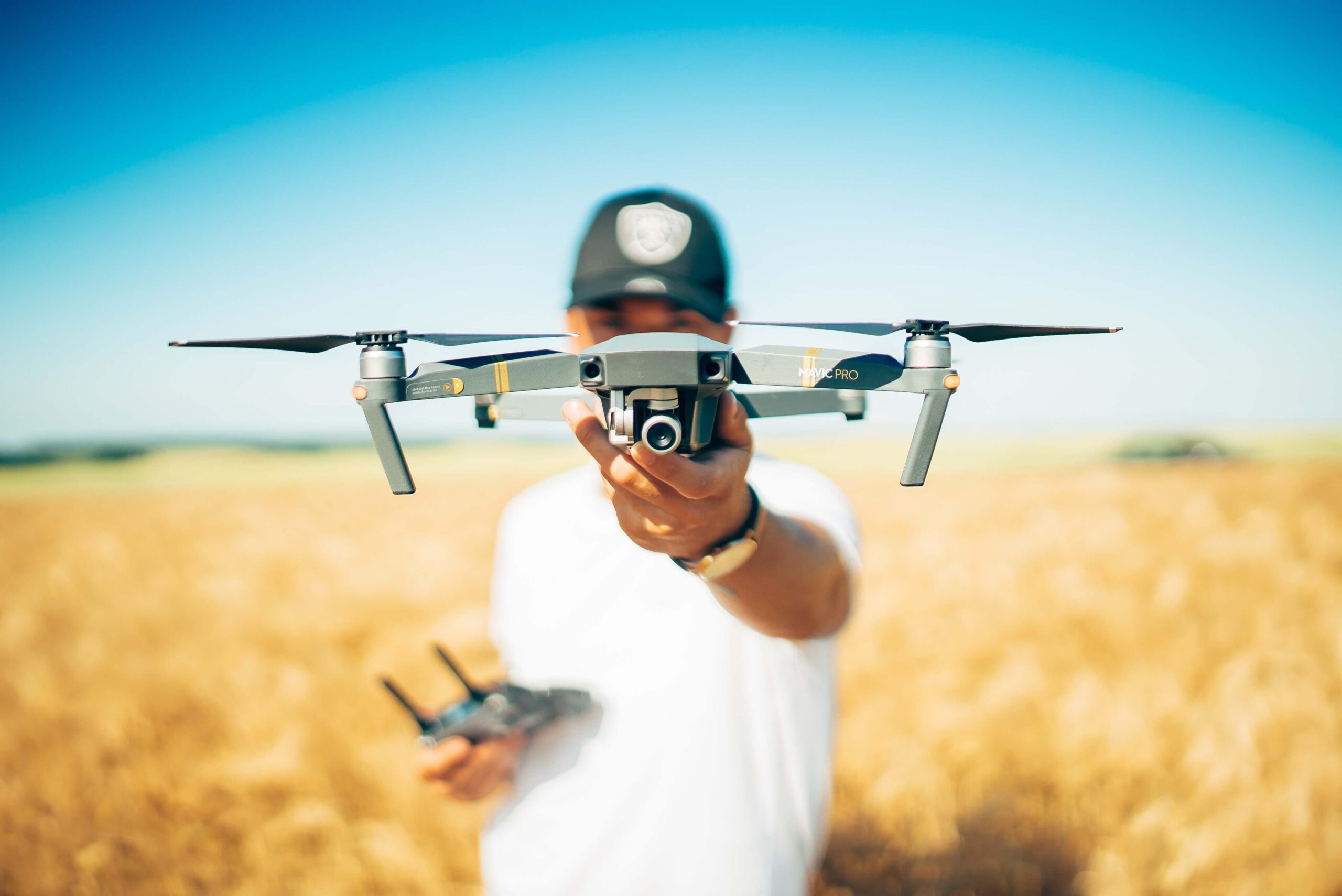
Did you know drones were originally designed for military use? Drones have come a long way from their military roots – many are commonly used as toys in suburban neighborhoods today.
Industrial applications of drones have dramatically increased since 2016. Due to their unique vantage points and durability, drones (technically, Unmanned Aerial Vehicles, or UAVs) have become vital tools in public safety missions. Various agencies and law enforcement use them to gather data, capture video footage, and save lives.
In addition, scientists with the National Oceanographic and Atmospheric Administration (NOAA) have been flying manned research aircraft into hurricanes since the 1940s. Recently, scientists used drones inside Hurricane Ian to take valuable weather measurements.
Today we’ll look at the ways drones have impacted public safety operations. If your industry currently uses drones (or would like to), we’ll also discover how you can ensure unbroken drone connectivity via satellite technology.
How Are Public Safety Agencies Using Drones Today?
Law enforcement agencies, firefighters, first responders and emergency response teams are using drones for a wide variety of purposes.
Law Enforcement
Drones provide a versatile aerial vantage point for police officers to conduct searches, penetrate vulnerable structures, and monitor suspects while keeping officers and bystanders safe. In addition, their ability to provide live stream updates offers invaluable situational intelligence for command centers and ground teams.
In addition, drones can take high-res images of crime scenes and accidents to help document court cases and insurance claims.
Firefighting
Drones are vital tools in combating fires and inspecting hard-to-reach areas, giving valuable intel to firefighting teams previously unattainable from land-based crews. Drones’ unique insights enable firefighters to map impacted areas, increase response time and optimize safety.
Drones can also assist in fire prevention by starting small, controlled burns that create fire breaks in known wildfire areas.
First Responders
Time is of the essence for first responders, as effective disaster response entails assessing and mapping out calamities quickly. For example, drones can survey damaged roads, bridges or buildings made isolated or inaccessible by severe weather, earthquakes and other circumstances.
First responders can then take appropriate action to reach victims and bring them to safety.
Search and Rescue
Drones are a fast, safe and cost-effective alternative to manned aircraft like helicopters during search and rescue missions. Drones cover more ground than people on foot, and can avoid weather complications and obstacles that slow terrestrial teams down.
Thermal cameras also work under any lighting conditions, making even night searches for people lost or missing more effective.
What Are the Benefits of Using Drones for Public Safety?
Drones make public safety situations safer while increasing situational awareness and intelligence. Law enforcement, firefighters and first responders benefit in myriad ways by employing drones in various rescue operations.
Drones are:
- Safe
- Scalable
- Able to acquire valuable intel quickly
- Able to coordinate rescue efforts between agencies
Safe
Drones perform hazardous tasks that keep people safe and out of harm’s way. For example, some drones can withstand intense heat, enabling them to monitor wildfires from locations closed off to humans.
Scalable
Drone pilots require far less training than helicopter and airplane pilots. In addition, drones are much more cost effective than traditional air-based craft, making them more affordable for public safety agencies to acquire.
Acquire Valuable Intel Quickly
Attaining accident and crime scene documentation for public safety can be painstakingly slow and costly. However, drones can rapidly acquire high-resolution footage and data at a much lower cost than conventional methods.
Coordinate Rescue Efforts
When public safety agencies work together, coordination is crucial for successful outcomes. Synchronizing efforts with live streaming feeds keeps teams informed in real-time, reducing miscommunication and potentially life-threatening errors.
What Trends Can We Expect to Emerge in Public Safety Drone Usage?
What advances can we expect to see as drone usage increases in this industry?
Drone-as-a-Service (DaaS): DaaS will enable organizations to outsource their drone needs. Integrating 5G technology into drones will allow users to engage in autonomous flying, seamless media sharing and command and control functions.
Package delivery: The surge in ecommerce has necessitated improvements in logistics and delivery services. Using drones to lift and deliver light packages over short distances eliminates the need for delivery drivers to exit their vehicles, making deliveries more efficient.
Hybrid drones: Hybrid drones combine fuel and batteries, lengthening flight time. Amazon uses hybrid drones for package delivery due to their increased power.
Rotary blade drones: These drones can retain a visual target for lengthy periods and perform complicated aerial maneuvers. Rotary blade drones are also easier to control than other types of drones, making them well suited for surveillance, filming and photography applications.
Expanded commercial applications: Commercial drone usage will likely broaden to verticals that include logistics, real estate, agriculture, construction, entertainment and journalism.
How Can IP Access Assist With Drones for Public Safety Operations?
IPA’s technology can communicate with drones in a way that enables connectivity to remain static during difficult circumstances. It’s this unbroken connectivity that makes drones more valuable for public safety uses.
If your business handles public safety operations, seamless connectivity is imperative. IP Access International can help you achieve the best results for your communications network, offering the nation’s largest satellite network for public safety communications.
To learn more about retaining network integrity in any situation, contact us today.